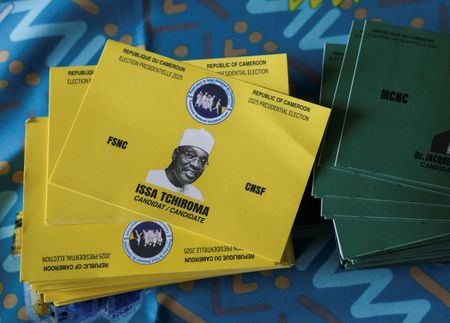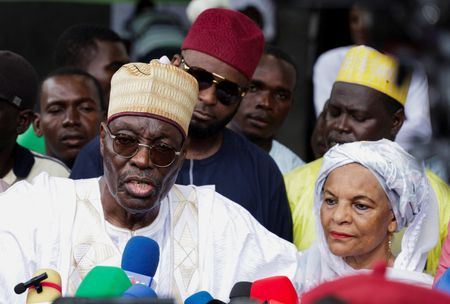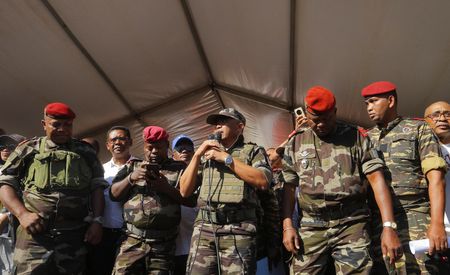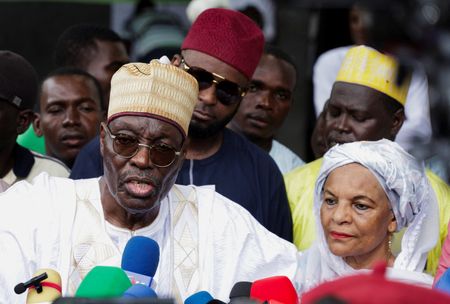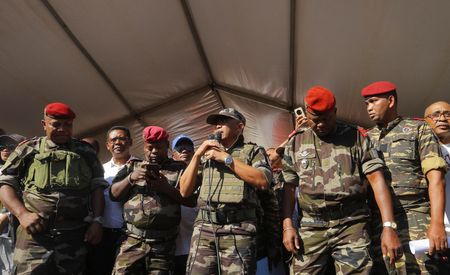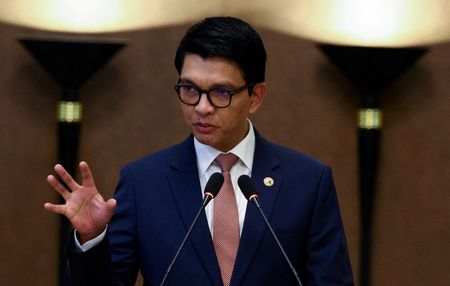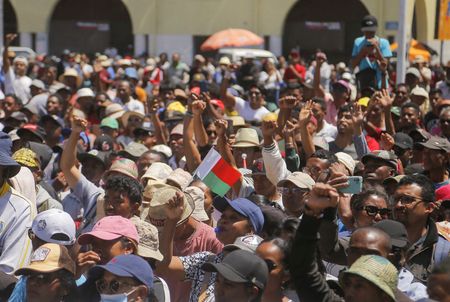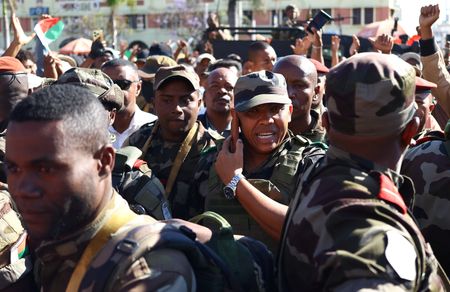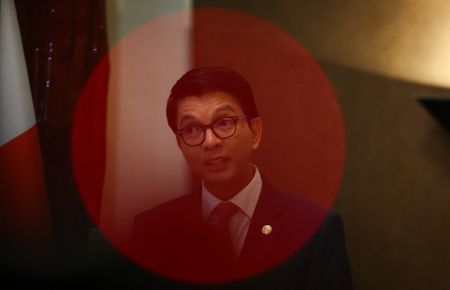By Bate Felix
YAOUNDE (Reuters) -Issa Tchiroma Bakary, a longtime ally and former spokesperson for Cameroon President Paul Biya, is mounting a strong challenge to his former boss, claiming to have defeated him in the October 12 presidential election.
In a speech late on Monday, the 76-year-old former minister declared victory and urged Biya, who at 92 is the world’s oldest-serving head of state, to “show greatness” by conceding.
“Our victory is clear. It must be respected,” Tchiroma said. “The people have chosen. And this choice must be respected.”
The declaration marks a dramatic turn in the career of a man who for years defended Biya’s policies, including during the country’s most turbulent crises. His transformation from staunch ally to opposition figurehead and challenger is one of the most striking political shifts in Cameroon’s recent history.
His candidacy has electrified voters who are clamouring for change after more than four decades of Biya’s rule, during which economic development in the oil- and cocoa-producing nation has stagnated.
TRANSITIONAL ROLE ENVISAGED
A collection of opposition parties and civic groups known as Union for Change has backed Tchiroma’s candidacy with the promise that he would serve as a transitional leader, carrying out audits and overdue reforms of state institutions.
Born in Garoua, in northern Cameroon, Tchiroma trained as a railway engineer in France before returning home to work for the national railway company.
His political career began in earnest in the early 1990s, following a six-year imprisonment over his alleged involvement in the failed 1984 coup against Biya.
He entered parliament in 1992 and aligned with Biya’s Cameroon People’s Democratic Movement, serving as transport minister before a 10-year stint as communication minister from 2009 to 2019.
In these roles, Tchiroma was known for his staunch defence of government actions during crises such as the Boko Haram insurgency, when the army was accused of abuses against civilians, and the civil conflict in the country’s English-speaking regions.
But in June, Tchiroma stunned the political establishment by resigning from his post of employment minister and announcing his candidacy for the presidency, accusing Biya’s government of mismanaging Cameroon’s resource wealth and failing to deliver basic services.
PUBLIC APOLOGY
Tchiroma’s campaign has featured fiery criticism of the ruling party as well as a public reckoning with his own past.
He has, for example, acknowledged his role in defending the government’s handling of the Anglophone crisis, a conflict he once denied existed.
“In my capacity as minister, I did something which distorted, which hurt your mind. Once again I want you to please forgive me because I apologise,” he said while campaigning in an English-speaking part of the country this month.
Tchiroma also said atrocities were committed by the military whose actions he was defending.
“I 100% agree that the military committed atrocities,” he said. “But as Minister of Communication, my duty was to defend our armed forces. Today, I speak as a free man.”
Tchiroma has proposed a national reconciliation process that would include amnesty for political prisoners and Anglophone separatist leaders, and dialogue with the separatists.
He has also promised reforms that could return the country to a “federal” system of government, a word he once banned from national media while he was a minister.
(Writing by Bate FelixEditing by Robbie Corey-Boulet and Sharon Singleton)

